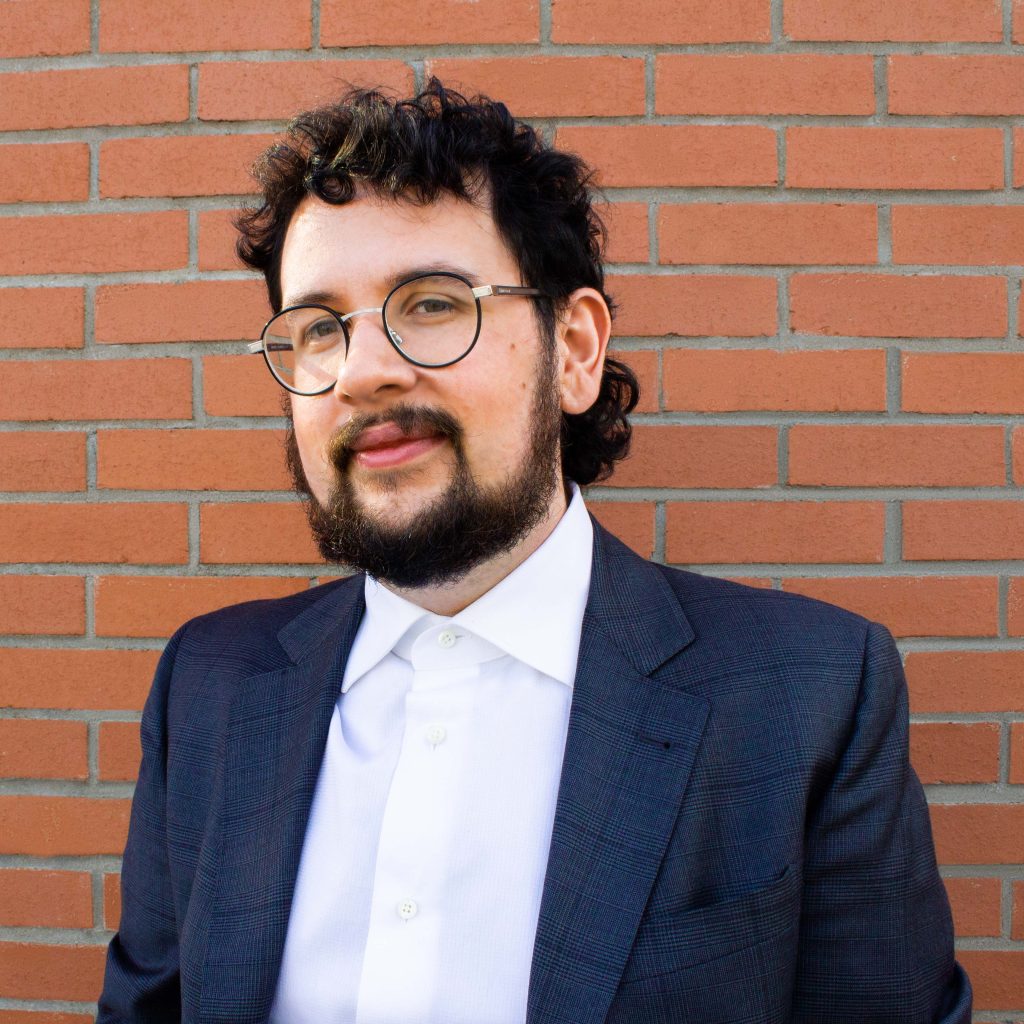Fabio Robibaro is a Ph.D. student in Sociology at the University of Toronto, specializing in social policy, care, and mental health. He is a Research Assistant with the Care Economies in Context project, where he primarily conducts quantitative analysis on care data. His research explores the intersection of unpaid caregiving, employment, and mental health, with a focus on role conflict and structural inequality. Beyond academia, Fabio is actively involved in community-based research partnerships and contributes to national policy dialogues on caregiving through his work as a data analyst with the Canadian Centre for Caregiving Excellence.

How did you first become interested in your area of research?
Growing up in an Italian household, care was woven into the fabric of daily life. My grandmother, a first-generation migrant, was my primary caregiver, cooking, picking me up from school, and playing a key role in my upbringing. In 2007, she was diagnosed with Alzheimer’s and her role shifted from caregiver to care receiver. This reversal made me aware, even if only intuitively at the time, of how care evolves across the life course. As her condition worsened, the responsibility of care fell on my parents until it became unmanageable. With hindsight I can see just how difficult care systems were to navigate and has always guided my desire to see these systems change.
My interest in care and social policy is deeply personal. I’ve seen firsthand how public support can relieve family burden when they are functioning and not full of barriers and waitlists. My experiences have taught me that policy is never abstract; it is lived. My time at Statistics Canada helped galvanize this realization, launching me onto an academic path by showing me that research and data analysis could be a vehicle for structural change. Despite now moving on to my PhD at University of Toronto, my time at StatCan gave me the tools to begin reimagining what care could look like for my family, and for so many others like ours. My dissertation focuses on how people balance the multiple stressors caregivers experience, specifically while they must juggle employment and care at home. My parents never stopped and there are millions of families in Canada who are supported by working caregivers. This is why I study care, labour, and inequality, because I’ve lived their consequences and want to see change.
What is something surprising that has emerged during your research?
One of the most surprising findings in my research has been just how fragmented and inconsistent care-related policy is across Canada. Despite the fact that caregiving affects millions of Canadians, access to supports remains highly uneven depending on a myriad of factors outside of the caregiver’s control. Systemic barriers, like bureaucratic complexity, regularly prevent caregivers from receiving the help they need. Even basic services, like respite care or financial assistance are not streamlined or well-publicized. For instance, a majority of caregivers are unaware that tax credits even exist to support them, let alone how to access them. Digital systems are often outdated and not designed with caregivers in mind, making online navigation time-consuming and confusing. This coupled with the fact that there are radically different systems across provinces leads to inefficiency, confusion and making care even harder on families. This lack of a cohesive system underscores a deeper issue: caregiving policy in Canada is reactive, not proactive. My work continues to highlight how these policy gaps create unnecessary stress and inequality for those already shouldering immense responsibilities.
What do you wish the general public knew about your research, and what would you like them to do with this knowledge?
When talking to caregivers, there is often a self-identification problem — people do not see themselves as a caregiver, but as a son, a mother, an uncle, a friend doing what is right for someone they care about. This is a social role you take on, and you are entitled to support! Caregivers aren’t alone and if they feel alone, they need to have their voices heard. Too often caregivers are left to feel like they have no choice but to care without support. Governments need to know that caregivers need help, and my research seeks to shed light on this fact. We know that 1 in 2 Canadians is a caregiver, 1 in 4 cares for a senior or someone with a disability, and 60% of caregivers balance employment and unpaid care. They need help and through my research I hope to amplify their voices regarding these issues.
What advice do you have for students who are interested in doing research that takes up themes that are similar to yours?
- Take every opportunity you can seriously, you never know what will come of it. In 2018, I wrote my first paper focusing on the care economy, which I was fortunate enough to get published in a student journal. That article was my writing sample for my master’s degree and would ultimately be the piece I spoke about in my interview for Statistics Canada. My job at Statistics Canada would connect me with a myriad of professors at University of Toronto, including Ito Peng, from whom I now get to learn every day. It would also allow me to work with the tremendous team at the Canadian Centre for Caregiving Excellence where I have learned the power of advocacy. One article for one class changed my life.
- Look for mentors, or to put it more simply, look for people to learn from. At every one of the steps described above I met someone who I consider a mentor, to whom I can turn when I need advice and guidance. I have found that the more you show people that you care and the more receptive you are to feedback, the more they are willing to share with you what took them years to find out.
Related Profiles
-

Fabio Robibaro
Trainee

